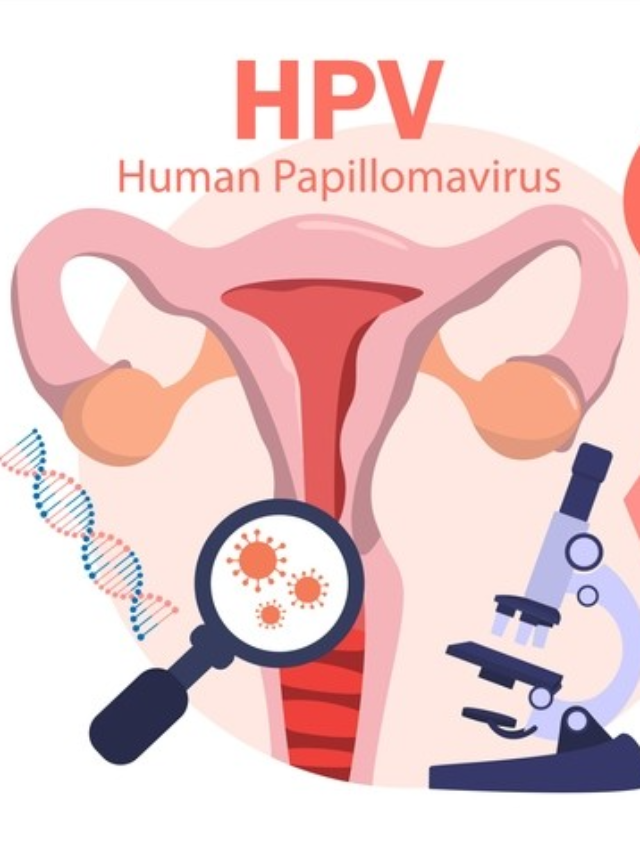Clean Your Mind during moments of stress or mental stagnation can be a valuable practice. This quick mental reboot helps to declutter your working memory, providing you with a more organized mental workspace.
Imagine a cluttered desk, piled high with various project notes, memos, and important documents. When you need to locate specific information in such chaos, the task becomes needlessly challenging.
In a similar vein, when unnecessary or distressing thoughts accumulate in your mind, it can feel like cycling through unwanted mental clutter. This futile search for a memory or important idea can result in feelings of mental fogginess and overwhelm.
However, there’s no need to despair. When your mind feels less efficient than usual, the following eight tips may prove quite effective in restoring clarity and focus.

Practice mindfulness
Cultivating mindfulness offers numerous benefits in various aspects of life.
First and foremost, mindfulness helps you stay fully engaged and focused on the present moment, enhancing your awareness of your surroundings. This heightened presence allows you to give undivided attention to the tasks at hand. For instance, you can actively listen to a coworker explaining a complex task without getting distracted by:
- Mental notes of things to add to your to-do list.
- Thoughts about grocery shopping and dinner ingredients.
- Speculations about why your recent date hasn’t responded.
By practicing mindfulness, you learn to consciously direct your focus to one task, gently quieting those background thoughts. While these thoughts still exist, they no longer demand your immediate attention. This mental decluttering frees up your cognitive resources, making your experiences more enjoyable and less hurried.
Mindfulness meditation, particularly the practice of mindfulness itself, can be a powerful tool to boost your mindfulness and alleviate stress. It teaches you how to sit with distracting thoughts, acknowledge them, and then release them. Even if formal meditation doesn’t suit you, you can incorporate mindfulness into your daily life. Here’s how:
- Focus on Sensations: Engage all your senses to immerse yourself fully in the mundane experiences of daily life. Whether it’s scrubbing the shower or cycling to work, pay attention to the sensory details – the rhythmic motion of the sponge, the scent of the cleaner, the smooth texture of the tub, or the wind on your face, the various scents around you, and the sensations in your muscles as you pedal.
- Focus on Your Breath: In moments of overwhelm, intentionally slowing your breathing can help ground you in the present. Take slow, deliberate breaths, inhaling deeply, holding for a few seconds, and then exhaling slowly. Repeat this process ten times to regain your presence.
- Stay Curious: Clean Your Mind to the potential lessons in each situation, fostering your concentration. When emotions surface, inquire into their triggers and underlying causes. If a particular distracting thought persists, trace it back to its source to gain deeper insights into its origins. Then clean your mind.
It’s important to note that occasional drifting thoughts are perfectly normal during mindfulness practice. Avoid self-criticism if you feel you’re not mindful enough; instead, gently redirect your thoughts back to your chosen focus. Developing mindfulness takes time, but with practice, your mind will become more adept at staying present in the moment.
Write it out
When your mind becomes inundated with stressful thoughts, it can be a challenging task to sift through them and identify the root causes of your distress.
If you’ve ever maintained a journal, you likely understand that putting your thoughts into written words can facilitate the exploration of your inner thoughts and feelings.
Research corroborates the notion that journaling can effectively reduce intrusive thoughts and mental “clutter.” Consequently, this process can lead to a smoother operation of your working memory and other cognitive functions, potentially alleviating stress in the process.
Moreover, revisiting your written thoughts allows you to discern patterns or recurring issues. After a freewriting session, you might even realize that you were not fully aware of some of the concerns you had jotted down. With this newfound awareness, you can begin addressing these concerns for lasting relief.
Furthermore, expressing your emotions through writing can be almost symbolic. When you transcribe your feelings onto paper, it feels as though you are transferring them out of Clean Your Mind.
Here are some helpful journaling tips to consider:
- Be Consistent: Dedicate a minimum of 15 minutes to writing each day. Consider making it a part of your evening routine, integrating it into your pre-bedtime ritual.
- Go with the Flow: Write about whatever comes to mind without censorship or the need to erase thoughts. Allow your thoughts to flow freely onto the page.
- Keep It Close: Keep your journal within easy reach to document any challenging or recurring thoughts that arise during the day.
- Take Time to Reflect: Periodically review your journal entries and observe how things have evolved or remained unchanged over time. Utilize these insights to explore areas for personal growth.
In essence, journaling serves as a powerful tool to navigate the complexities of your thoughts and emotions, ultimately leading to enhanced self-awareness and emotional well-being.
Get Musical
Many individuals derive enjoyment from listening to music, but its impact extends beyond a pleasurable auditory experience. Music holds the potential to:
- Relieve Stress and Improve Mood: Music has the remarkable ability to alleviate stress and enhance one’s emotional state. It can serve as a powerful tool for relaxation and mood regulation.
- Enhance Concentration and Memory: Engaging with music can sharpen concentration and bolster memory retention. This effect is particularly valuable when focusing on tasks that require sustained attention.
- Foster Motivated Learning: Music can serve as a motivational backdrop for learning, making the educational process more engaging and enjoyable. It can inspire a love for learning and exploration.
- Promote Neuroplasticity: Music encourages neuroplasticity, the brain’s capacity to adapt and rewire itself. It nurtures cognitive flexibility and the brain’s ability to learn new skills.
If you are a regular listener of music, you may have already experienced these effects firsthand. It often becomes easier to maintain focus on tasks and accomplish them when music accompanies your efforts.
Perhaps you have identified specific songs that help you rejuvenate between tasks, enabling a smoother transition of focus. Alternatively, you may have curated a playlist that instills a sense of calm and serenity, especially during moments of heightened anxiety.
Rest assured, the positive effects of music are not a product of imagination but a well-documented phenomenon. As such, continue to embrace the therapeutic benefits of music in your daily life.
Sleep it off
A restorative night’s sleep not only revitalizes you when you’re physically fatigued but also plays a crucial role in safeguarding your mental well-being.
You may not be aware that achieving sufficient, high-quality sleep serves as a defense against mental fatigue and emotional distress. Inadequate or poor sleep can disrupt your problem-solving abilities, and decision-making processes, and impair your capacity to remember essential information or regulate your emotions effectively.
Excessive tiredness can overwhelm your mental faculties, making it challenging to disengage from a jumble of thoughts and focus on the tasks at hand.
To optimize your brain’s daytime performance, it is recommended to aim for a duration of 7 to 9 hours of sleep per night. However, achieving restful sleep can be easier said than done, particularly when anxiety and persistent thoughts occupy your mind and Clean Your Mind.
If this situation sounds familiar, you may find it beneficial to explore a range of 17 tips and techniques for improving your sleep quality. These strategies can help you establish a healthier sleep pattern and enjoy the mental and emotional benefits of a well-rested mind.
Take a walk
Changing your surroundings and taking a stroll outdoors presents an excellent opportunity to Clean Your Mind and regain focus.
Research from 2014 indicates that a good walk offers various advantages, including enhanced creativity. It encourages the generation of more creative ideas, making a daily walk an effective reset button when persistent thoughts threaten to distract you.
Even a short 20 to 30-minute bout of exercise can boost decision-making abilities and reaction time, especially right before engaging in a cognitive task. Beyond these immediate benefits, incorporating a brisk walk or other forms of exercise into your routine contributes to better overall brain health. Additionally, it aids in reducing stress, making it a valuable addition to your lifestyle.
Keep your space
As procrastinators worldwide are well aware, a vigorous cleaning session often serves as the ideal escape from daunting or unpleasant tasks. However, there may be more to this strategy than merely postponing work.
Take a moment to consider the underlying reasons for your procrastination. Perhaps you’re feeling stuck or uncertain about how to initiate the task at hand.
What you might not realize is that your physical environment can significantly impact your mental state. When your workspace mirrors the Clean Your Mind, it can hinder concentration and obstruct your ability to grasp ideas effectively. Consequently, you may resort to various distractions as a means to cope with reduced productivity.
Reorganizing and decluttering your workspace can prove instrumental in revitalizing your thought processes. While this approach may consume some time, it is a worthwhile investment, especially when confronted with tight deadlines. Alternatively, establishing a routine to maintain a tidy workspace can contribute to heightened cognitive function and improved workflow, making it an efficient long-term strategy.
Focus on unfocusing
Experiencing difficulties in maintaining concentration? Occasionally, the most effective solution is to release your efforts.
Consider it akin to physical exercise. Just as your body would struggle to jog continuously throughout the day without breaks, your brain also requires moments of respite.
Allowing yourself to briefly unfocus, drifting into a state of daydreaming or zoning out, triggers the activation of your brain’s default mode network. This brief interlude provides your brain with the opportunity to rejuvenate. Much like the restorative benefits of sleep, these periods of unfocusing offer significant advantages to your brain. Unfocusing can stimulate creativity, refine thought processes, and enhance memory retention and learning capabilities.
Here are some effective methods to shift your focus away momentarily:
- Take a short nap.
- Go for a leisurely walk.
- Engage in constructive daydreaming (ensuring it’s a productive form of daydreaming).
- Doodle on paper to channel your thoughts creatively.
Talk about it
Have you ever experienced a surge of energy and a profound sense of renewal after engaging in a lengthy conversation with someone you trust?
Chances are, it wasn’t a mere coincidence. Verbalizing troubling thoughts and feelings often serves as a potent means to alleviate the burdens they may have imposed. As these thoughts become less weighty, they may naturally dissipate from the forefront of your consciousness, leaving you with a revitalized sense of clarity.
Discussing your concerns can assist in articulating them more logically, as you must convey your troubles in a manner that others can comprehend. This process frequently grants you a fresh perspective on the situation and can uncover potential solutions that you may not have previously considered.
Conversations with family and friends can be invaluable in initiating the process of addressing frustrations and Clean Your Mind. However, if you find yourself unable to break free from the mental fog independently, seeking professional assistance can provide added support.
A therapist can offer guidance in:
- Exploring the underlying causes of concentration difficulties.
- Identifying and addressing recurring thought patterns.
- Acquiring coping skills and techniques to rejuvenate Clean Your Mind.
- Managing any underlying mental health symptoms that may contribute to mental clutter.
Conclusion:
While your brain may not possess a literal restart button, there are numerous approaches you can employ to refresh it.
If the methods mentioned earlier prove ineffective in cleaning your Mind and enhancing your concentration, seeking guidance from a therapist represents a beneficial next course of action.https://www.healthline.com/health/mental-health/how-to-clean-your-mind









